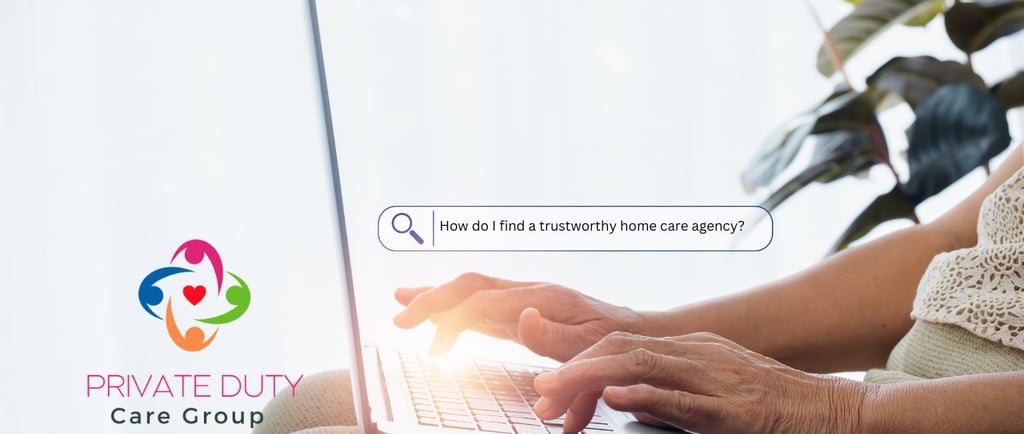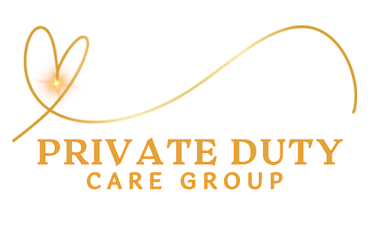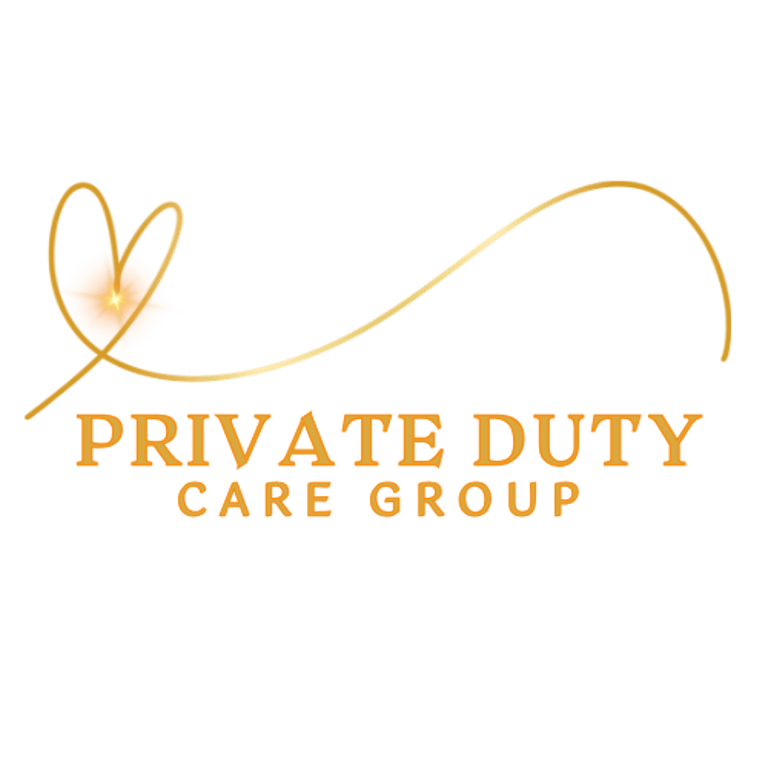How do I find a trustworthy home care agency?
Choosing an in-home care agency to support yourself or a loved one is a personal and consequential decision. With the growing demand for caregiver services—driven by an aging population and a preference for aging in place—families in the U.S. and Canada face a maze of options, regulations, and marketing claims. However, not all agencies prioritize quality, safety, or personalized care. This guide equips you with actionable strategies to identify a reputable agency that aligns with your needs, values, and budget.
Joel Inocencio
2/16/20254 min read


How to Find a Trustworthy In-Home Care Agency: A Step-by-Step Guide for Families in the U.S. and Canada


Navigating the Search for a Reliable In-Home Care Agency: A Practical Guide for Families in the U.S. and Canada
Selecting an in-home care agency to assist you or a family member is critical, blending practical needs with emotional trust. As more families seek alternatives to institutional care—driven by a desire for personalized support and aging in place—the market for caregiver services has expanded rapidly. However, not all agencies meet the same quality, safety, or compassion standards. This guide offers clear, actionable steps to help you identify a reputable provider that aligns with your unique needs, values, and financial considerations.
Step 1: Define the Scope of Care Required
Start by outlining your loved one's specific needs. A mismatch between services offered and actual requirements can lead to dissatisfaction or gaps in care.
Daily Living Support:
Identify tasks like bathing, meal preparation, mobility assistance, or medication reminders.
Consider whether specialized medical care (e.g., wound management, physical therapy) is necessary.
Evaluate emotional or cognitive needs, such as companionship or dementia-related support.
Schedule and Duration:
Determine if care is needed part-time, overnight, full-time, or as temporary respite relief.
Clarity at this stage ensures you target agencies equipped to handle your situation.
Step 2: Confirm Legal Compliance and Accreditation
For U.S. Families:
Licensing requirements vary by state. You can verify an agency's status through your state's Department of Health or Aging Services website.
Medicare certification is critical if skilled nursing or therapy is required. This certification guarantees adherence to federal safety protocols.
For Canadian Families:
Provincial regulations differ. For example, in Ontario, agencies must comply with the Home Care and Community Services Act, while British Columbia enforces standards through the Community Care and Assisted Living Act.
Seek agencies accredited by organizations like Accreditation Canada or provincial equivalents, which audit providers for quality and safety.
Caution: Unlicensed providers or solo caregivers may lack insurance, proper training, or accountability measures.
Step 3: Scrutinize Caregiver Hiring and Training Practices
A reputable agency will openly discuss how they select and prepare caregivers. Key areas to probe:
Screening Protocols:
Are criminal background checks, drug screenings, and reference checks mandatory?
Are caregivers classified as employees (which often ensures better oversight) or independent contractors?
Training Standards:
Do caregivers hold certifications such as Certified Nursing Assistant (CNA) or Home Health Aide (HHA)?
Is there specialized training for conditions like Alzheimer's, stroke recovery, or diabetes management?
Continuity of Care:
How often do caregivers rotate? Frequent changes can disrupt trust and routines.
Step 4: Research Reputation and Client Feedback
Online Reviews: Platforms like Google, Yelp, or industry-specific sites (e.g., CareLinx) provide insights into reliability and client satisfaction. Note recurring themes in feedback.
Better Business Bureau (BBB): Check ratings and complaint histories in the U.S. and Canada.
Direct References: Ask agencies for references (if possible) from current clients to discuss their experiences firsthand.
Step 5: Clarify Financial Expectations
Cost structures can be complex. Key considerations:
Pricing Models: Most agencies charge hourly (25–25–40 in the U.S.; 30–30–50 CAD in Canada). Live-in care may involve daily or weekly rates.
Insurance and Funding:
U.S.: Medicare covers limited home health services for medically necessary care. Long-term care insurance or Medicaid (for eligible individuals) may help offset costs.
Canada: Provincial health plans (e.g., Ontario's OHIP) often cover personal support workers for medical needs, but non-medical care typically requires private payment.
Contact Details: Review minimum hours, cancellation fees, and rate increase terms.
Step 6: Conduct In-Depth Interviews with Agencies
Prepare targeted questions to assess reliability:
"What happens if a caregiver is unavailable due to illness or emergency?"
"How do you tailor care plans to reflect cultural or religious preferences?"
"What steps do you take to resolve disputes or concerns families raise?"
Transparent, detailed answers signal professionalism.
Step 7: Emphasize Cultural Sensitivity and Personal Fit
A caregiver's respect for your family's values enhances trust and comfort. Inquire:
"Do you have staff fluent in [specific language] or familiar with [cultural/religious practices]?"
"How do you match caregivers to clients' personalities and lifestyles?"
Step 8: Stay Engaged After Hiring
Monitor care quality proactively:
Regular Updates: Use agency portals or scheduled calls to stay informed.
Observe Interactions: During visits, note your loved one's mood, hygiene, and overall well-being.
Address Issues Early: Report concerns immediately. A trustworthy agency will adjust care plans or caregivers as needed.
Step 9: Understand Legal Protections
U.S. Families:
Familiarize yourself with the Patient's Bill of Rights, which ensures dignity, privacy, and informed consent.
Suspected abuse or neglect should be reported to state Adult Protective Services.
Canadian Families:
Provincial laws such as Alberta's Protection for Persons in Care Act safeguard clients. Contact local seniors' advocacy groups for guidance.
Step 10: Explore Alternatives if Necessary
If agency care isn't ideal, consider:
Community Programs: Senior centers or adult day programs offer social engagement and essential health monitoring.
Technology Solutions: Devices like fall detectors, medic-alert brace, live video monitoring, automated medication dispensers, or virtual check-ins via apps.
Final Thoughts: Building a Partnership in Care
Choosing an in-home care agency is a journey that balances research with intuition. You create trust and safety by prioritizing accredited providers, scrutinizing caregiver qualifications, and advocating for personalized care. The best agencies view clients not as tasks to manage but as individuals deserving of empathy and respect.
Pro Tip: Begin your search early. High-demand agencies often have waitlists, and rushing the process can lead to compromises. With patience and persistence, you'll find a caregiver who feels like an extension of your family.
This article provides general guidance. For legal or medical advice, consult a licensed professional.
Concise Legal Disclosure
The content on this blog, including articles about natural supplements, holistic healthcare, disease prevention, and alternative treatments, is provided for informational purposes only and should not be considered professional medical advice. Always consult a qualified healthcare professional before making health-related decisions. The writer, publisher, and affiliates are not liable for any damages arising from the use of this content.
For full details, including indemnification and terms for third-party content, please see our Full Legal Disclosure.
Share Responsibly: Inspire others with holistic health insights, but always encourage professional guidance!
Independence in Practice
"Connect with High-Net-Worth Clients By Joining Our Elite Registry "
Leave A Text Message
Private Duty Nurse, Adult/Senior Caregiver, Nanny
admin@privatedutycaregroup.com
+1-914-207-5324
© 2024. Private Duty Care Group.
All rights reserved.


